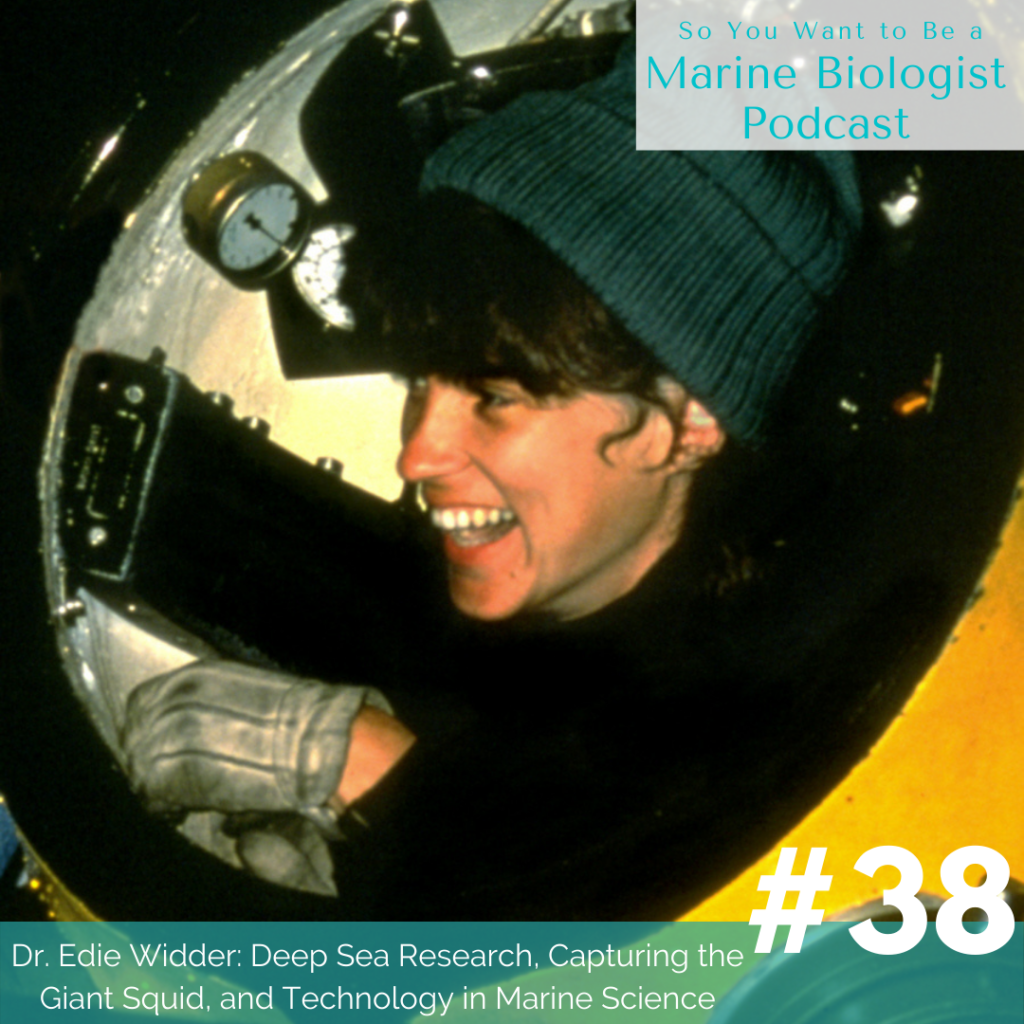Dr. Edie Widder is a three times TED speaker and the first person to film the giant squid. During her career, she has logged over 400 deep sea submersible dives. Her work has been featured in BBC, PBS, Discovery Channel and National Geographic television productions. Join us as she unveils her journey to marine biology, how she filmed the giant squid, and her current vital research closer to shore as the founder of Ocean Research & Conservation Association (ORCA).
In this episode you’ll learn:
- The tactics Edie used to document the deep sea squid for the first time (and discover a new species in the process!)
- Why Edie’s diversified background made her so successful
- Why Edie moved her research closer to shore
- How you can become involved
Connect with Edie: website
Quick Links
Tufts
UC Santa Barbara
Wasp Diving Suit
Deep Rover Submersible
Grebe
Harbor Branch Oceanographic Institute
HIDEX bathyphotometer
Johnson Sea Link Submersibles
The Glowing Sucker Octopus
Atolla Jellyfish
Capturing a new octopus species on camera
PEW Oceans
MacArthur Fellowship
Kilroy Academy
David and Lucille Packard Foundation
Grass Tea Fertilizer
Mangroves
Spartina
Scistarter.com
Show Notes
1:33 An accident that left her blind for a long period of time led Edie to pursue a degree in biology and neuroscience and not “marine biology” even though she knew she wanted to become a marine biologist.
6:10 How Edie became certified in a dive suit, turning down a post-doc offer to lift weights for a year to qualify to pilot the suit. Edie explains what the wasp suit is, how it got its name and how to drive this amazing piece of technology. The problem? It was tethered.
12:00 getting navy grants to work on bioluminescent projects. Why was the navy keen? To better hide submarines.
15:45 Edie Widder shares her favorite deep sea animal: the glowing sucker octopus. Instead of suckers, it has lights that are used for attracting both mates and prey. Dr. Widder also explains Earth’s largest animal migration, and it happens every single day in the ocean.
24:05 How the bioluminescent burglar alarm helped Edie capture the first ever footage of the giant squid! The best feeling in the world according to Dr. Widder? Discovering something no one has before.
30:38 Edie has worked with lots of amazing undersea technology. Learn who she works with and how she does it.
31:35 Why Edie started her own organization: the PEW Ocean’s Commission came out. It was a scientific consensus of the state of the ocean. The results were alarming and inspired Edie Widder to make a shift and create ORCA and subsequently the Kilroy program, an incredible citizen and technology based monitoring system.
40:30 The importance of citizen science and how Edie bridged the gap. Edie discusses ways for citizens to protect their watershed areas, particularly landscaping.
47:27 Edie Widder’s advice for aspiring marine biologists: DIVERSIFY! Get good at something, any number of specialties that are valuable to labs that you’re interested in.
48:38 Favorite story to tell? Definitely filming the new species of squid. But there’s a heckuva lead up story to it!
